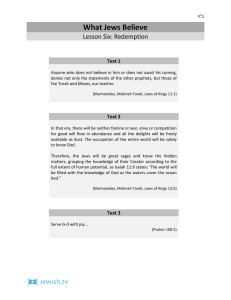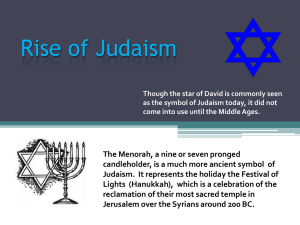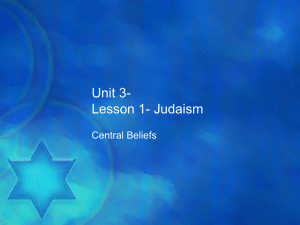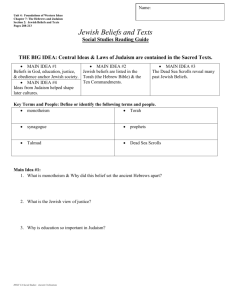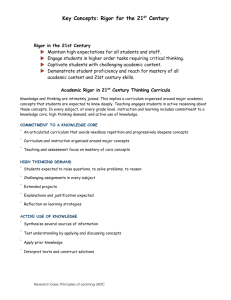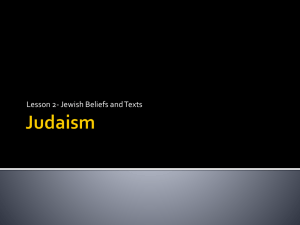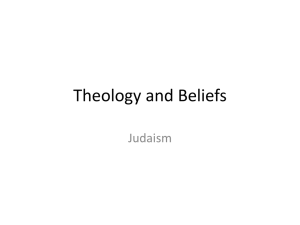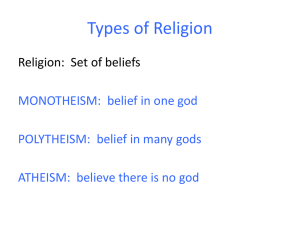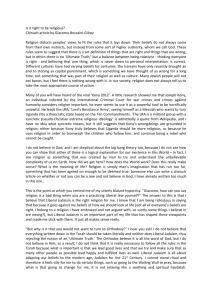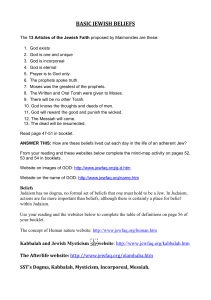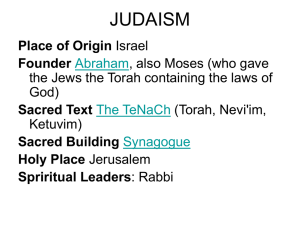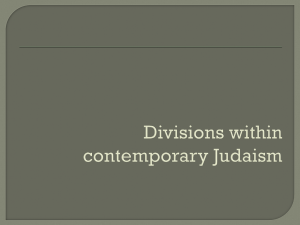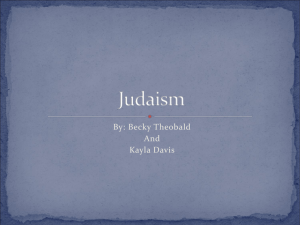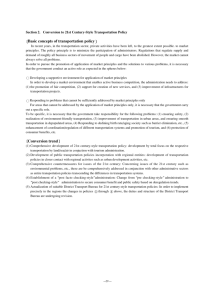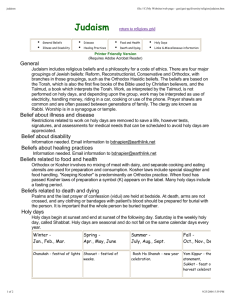Shavuot discussion – Dr. Carol Apt – 2014
advertisement
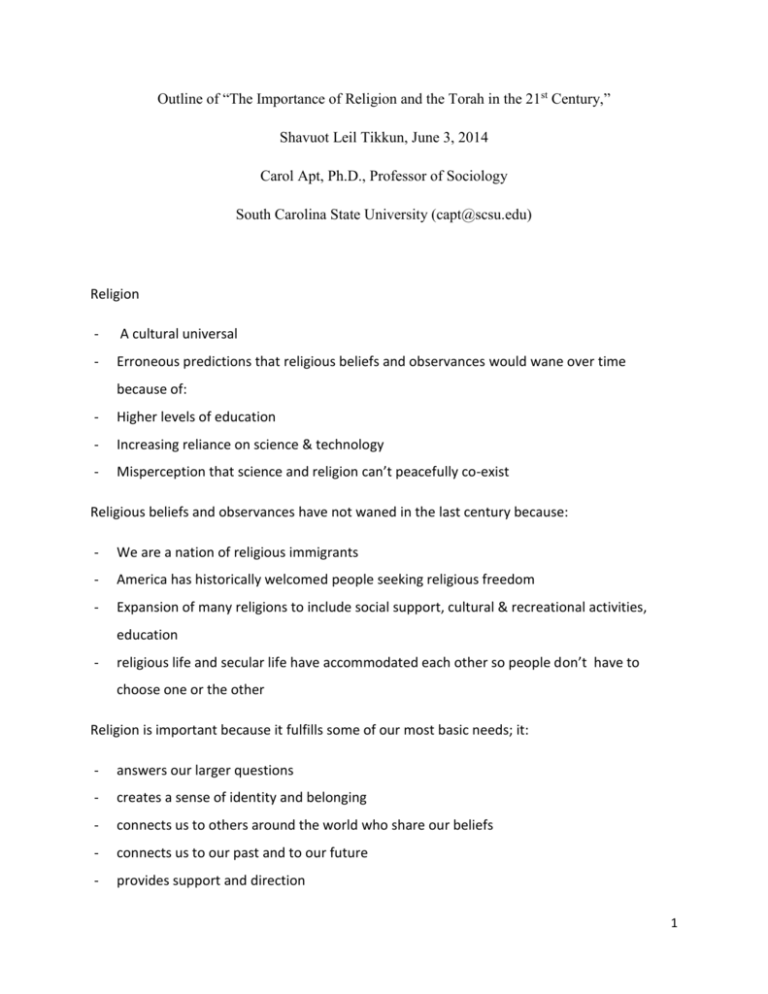
Outline of “The Importance of Religion and the Torah in the 21st Century,” Shavuot Leil Tikkun, June 3, 2014 Carol Apt, Ph.D., Professor of Sociology South Carolina State University (capt@scsu.edu) Religion - A cultural universal - Erroneous predictions that religious beliefs and observances would wane over time because of: - Higher levels of education - Increasing reliance on science & technology - Misperception that science and religion can’t peacefully co-exist Religious beliefs and observances have not waned in the last century because: - We are a nation of religious immigrants - America has historically welcomed people seeking religious freedom - Expansion of many religions to include social support, cultural & recreational activities, education - religious life and secular life have accommodated each other so people don’t have to choose one or the other Religion is important because it fulfills some of our most basic needs; it: - answers our larger questions - creates a sense of identity and belonging - connects us to others around the world who share our beliefs - connects us to our past and to our future - provides support and direction 1 Like religion, Torah will never lose its relevance because it provides guidance for some of our most pressing 21st century concerns: - Children: ‘Be fruitful and multiply.’ Because Jews have higher rates of infertility than members of the general population, most Jews support contraception and some forms of assisted reproductive technology. - Poverty: ‘there will never cease to be needy ones in your land.‘ Torah & rabbinic literature set out a number of ways to help the poor, but also states that poor people must engage in efforts to help themselves out of poverty. - Health: ‘do not stand idly by the blood of your neighbor.’ Our bodies are on loan to us and we must take care of them. If we were ill and couldn’t afford care we would want others to provide it for us and so we must do the same when others are in need. This and other forms of guidance apply to some 21st century issues: end of life, use of artificial life support, and the belief that pain and suffering are neither necessary nor beneficial, among others. - Justice: ‘justice, justice shall you pursue.’ While we must implement procedures to punish the guilty, we can’t always be sure who is guilty, so the death penalty is rendered virtually invalid. In general, 21st century Judaism would support reversing convictions if new evidence is available through DNA analysis, for example. The presumption of innocence is strong; so is the belief that adults must take responsibility for their illegal acts. - War and Peace: ‘if one comes to kill you, rise up early in the morning to kill him first.’ Judaism permits defensive wars, but it also urges us to work for peace, as peace is an underlying condition for all other blessings. Submitted: July 1, 2014 2
